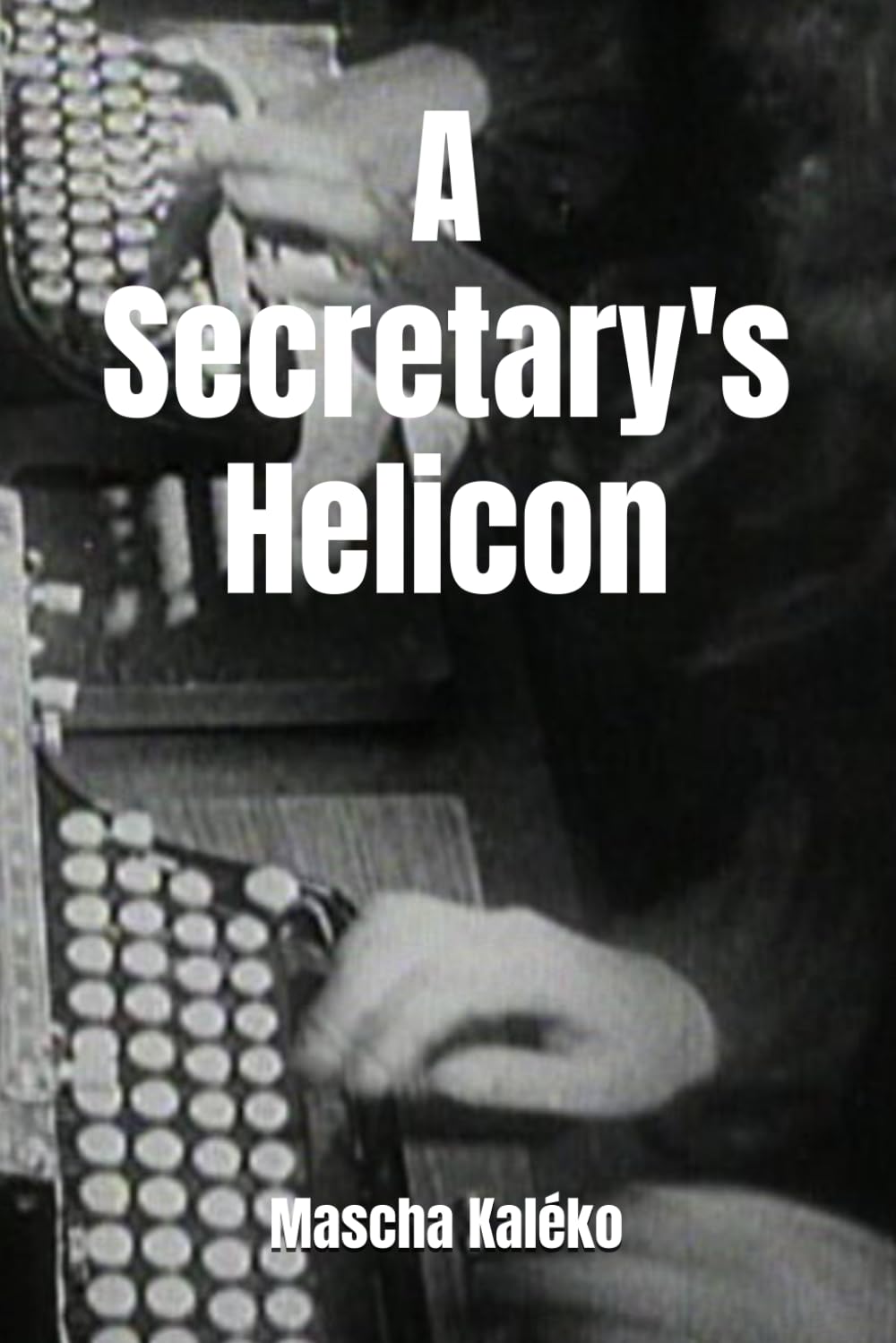
A Secretary’s Helicon
Kaléko took in Weimar Berlin with youth’s love-struck enthusiasm. She herself had come up hard, a Jewish girl raised in a Berlin slum during the great inflation, so when she describes life’s other side, every word is authentic. Yet her poignant poems about working people have a glamor; hope’s own iridescent gentleness.
Her poetry became an overnight sensation. She was suddenly one of the stars of the Romanisches Café. She was twenty-something, brilliant, and beautiful, in the most exciting city on earth; she was inspired and empowered by gramophone jazz and Josephine Baker movies. Like pop music, Kaléko’s Secretary’s Helicon matchlessly captured the mood of its place and time.
excerpt from the book
Time to Go Home
A weekday evening, seven o’clock,
the population of the capital city
pours into the street from a thousand doors,
dull-eyed, numb, pale, done;
everyday anxieties
in every line on every face,
briefcases sway on tired arms,
fingers fish nimbly in flattened wallets
for the monthly rail-pass.
You shoot a fast glance at your strange self
in the mirror on the vending machine,
sometimes you even toss in
a ten-pfennig piece, and —worth it
for a handful of roasted almonds
when it’s been that long since lunch.
You steal an eyeful of news
from the fat loud headline letters
of the evening edition on the newspaper stand.
The light rail line snakes its way
into the station with a hiss of steam
which you could imagine as a tropical wind
such as gusts through the pages of a schlocky novel.
The air in the car of the train is cold
and damp and smells like people,
as all overcrowded waiting-rooms do.
Exhausted men doze standing up,
nodding comically off into ten second naps,
to jerk back awake,
or else they timidly peer through the window,
to see how far off their station still is.
In a corner of the car a pair of blond sweethearts
lean into one another, the crowding
makes their closeness happily
unavoidable; fragments of commuter chatter
waft in and out of earshot,
float close, to sway inaudibly off.
A skinny high-school student gnaws a nut-bar
while he tries to practice a few more foreign verbs
before he gets to his evening class.
Every few minutes there’s a jerk and a lurch
so the train can make its patient pause
to let a few folk off,
and a lot of tired eyes look up to see
if this means there’s now a place to sit down.
Your ride the silver rails through the body
of this great living city while freezing darkness
befalls the blocks of tenements.
Like shadow puppets, a park’s leafless trees
dance past the train window in silhouette.
A pearl-string of carbon-arc street-lamps
trail a glittering ellipsis into the distance;
billboards rise like islands,
—wildly, tropically multicolored—
from the dreary sea of buildings.
Street-peddlers slowly shove their grimy carts
homewards, the prices they wrote
on their chalk-boards already half-effaced.
If you breathe on the blurry window of the train
and give it a wipe with your sleeve,
you can see all of seven P.M.
gliding expressively by.
The clock strikes. Through all this city
kids are waiting for their parents,
parents are waiting for their kids.
Children listen for the door,
mothers check the clock again.
From the window left open a crack
to cool the steamy overheated kitchen,
comes the good smell of a re-heated meal.
You hear the clink of dishes, finally the front door’s
creaking open, thudding shut,
then, the jingle of keys . . .